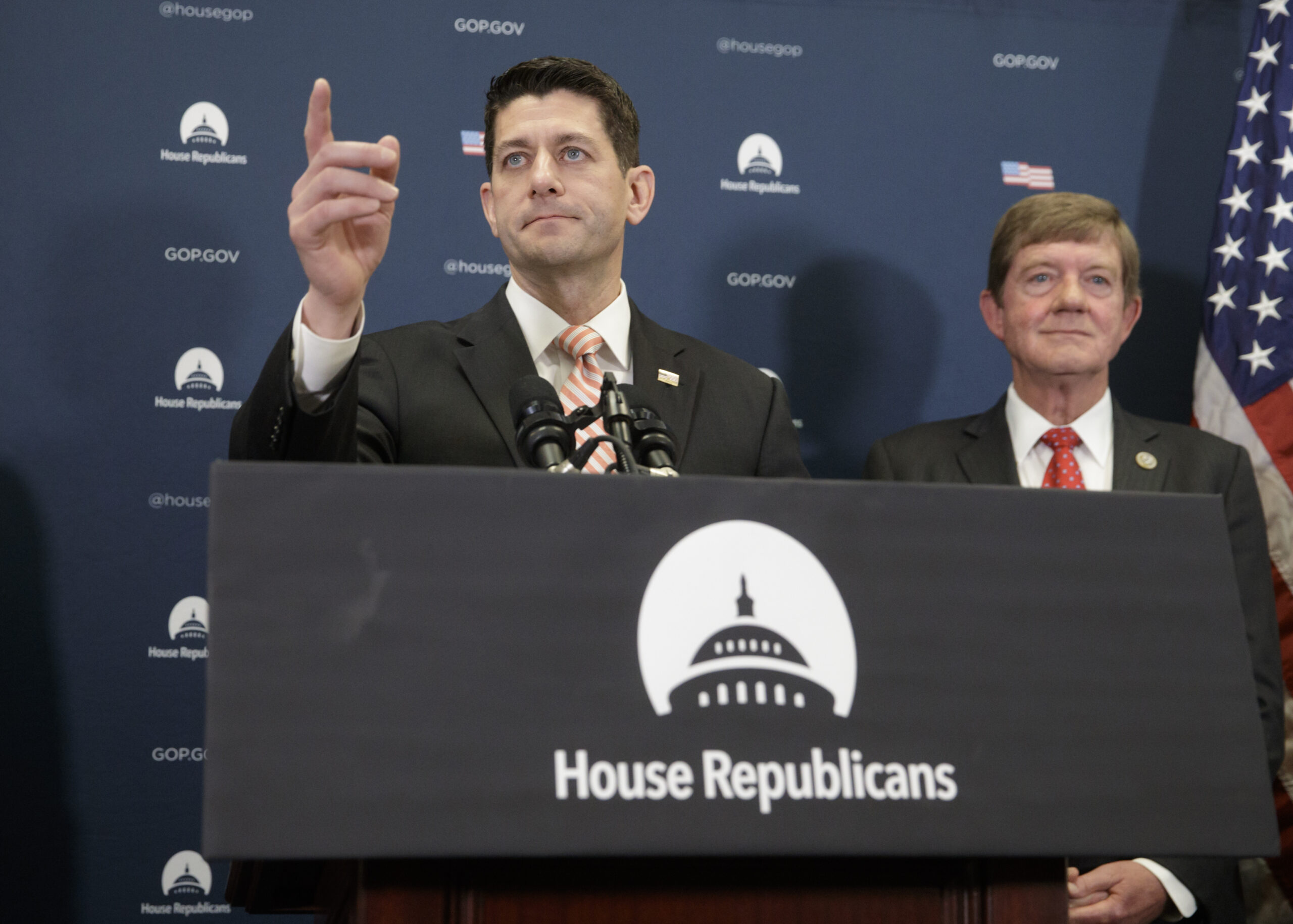Just as Obamacare reaches an all-time high in favorability among U.S. voters, House Republicans are gearing up to introduce their so-called replacement plan that would dismantle the Affordable Care Act’s subsidies and scrap its Medicaid expansion.
“Despite all the fear-mongering from the left, make no mistake about it: we’ll have an orderly transition to a better healthcare system that finally puts the American people first,” Vice President Mike Pence promised the crowd at Thursday’s Conservative Political Action Convention. But despite Pence’s proclamation, the language of Republicans’ first comprehensive “replacement plan” shows it will be anything but an orderly transition away from Obamacare.
According to a leaked draft bill, first reported by Politico, House Republicans hope to phase out Medicaid expansion, Obamacare’s popular subsidies and the unpopular individual mandate by 2020 — drastically reducing the number of Americans able to access affordable health insurance.
The House Energy and Commerce Committee is eyeing a markup of the bill in early March. It is unclear how, if at all, the draft dated Feb. 9 will change when presented by House Speaker Paul Ryan and House Republicans next week.
GOP leaders are calling for popular mandates in the law, like the requirement to cover Americans with pre-existing conditions, to be scaled back. Republicans in Congress are also ideologically opposed to regulating prices and argue that permitting insurers to sell policies across state lines would encourage competition and pull down costs.
“Not everybody is going to have health care,” Republican Rep. Dennis Ross of Florida told Bloomberg about the GOP’s plan. “Some people just don’t care enough about their own care,” he argued, saying Republicans can provide people access to affordable insurance plans, “but whether they take it or not is like trying to legislate responsibility.”
The Affordable Care Act forces insurers to sell to people with pre-existing conditions. Plans provided under the law must also cover “essential” services including mental health treatments, maternity care and rehabilitation.
Instead of the subsidies provided by the federal government to assist low- and moderate-income Americans afford premiums and deductible, Republicans’ plan calls for a tax credit between $2,000 and $4,000, which would increase based on a person’s age. Republicans say income-based credits, as exists under Obamacare, discourage work. Under their refor, poorer people wouldn’t get additional money to help them afford insurance. HHS Secretary Tom Price wants the age-based tax credits to be even less generous for most age groups than the Republicans’ plan currently proposes, Politico notes.
And even though two-thirds of respondents in a recent Health Tracking Poll from the Kaiser Family Foundation say they don’t support turning Medicaid into a grant program, Republicans have also called for either a “per capita cap” for Medicaid, which imposes a per-person cap on federal spending on Medicaid, or a Medicaid block grant program. According to the Center on Budget and Policy Priorities‘ Edwin Park, “both would radically restructure Medicaid’s financing and have similar, deleterious effects on states and beneficiaries.”
The plan also includes $10 billion per year in “state innovation grants,” which are a version of high-risk pools to help sick people get coverage and stabilize premiums but appear to allow for a broader array of uses for the money by states. Prior to the passage of the Affordable Care Act, however, many of these state plans ended up being so expensive, because they covered only sick patients, that they had to cap enrollment.
Perhaps even more egregiously, House Republicans also plan to sunset the community first choice state plan option — which provides for disability and aging services — in 2020.
The GOP plan is paid for in part through a proposal to start taxing employer-sponsored health insurance plans above the 90th percentile of premiums. But that plan is adamantly opposed by the most conservative hardline members of the House, which constitute one of the GOP’s largest caucuses in the lower chamber. Perhaps that is why Ryan’s predecessor, former GOP House speaker John Boehner, said this week of Republicans’ plans, “[they are] going to fix Obamacare—I shouldn’t call it repeal-and-replace, because it’s not going to happen.”
“Most of the framework of the Affordable Care Act,” an unrestrained Boehner added, “that’s going to be there.”
However due to one of the first executive orders signed by President Donald Trump, requiring federal agencies to “waive, defer, grant exemptions from or delay implementation of any provision or requirement” of the ACA that imposes a burden “to the maximum extent permitted by law,” without a replacement for Obamacare by 2018, many insurance companies are likely to flee state exchanges as costs skyrocket.
At an appearance at CPAC on Friday, Trump called Obamacare “a failed health-care law that threatens our medical system. An absolute and utter catastrophe.” In December, U.S. Health and Human Services Department Secretary Sylvia Burwell cited analysis that has projected up to 30 million people would lose coverage if Obamacare were to be repealed without a replacement plan in place.

